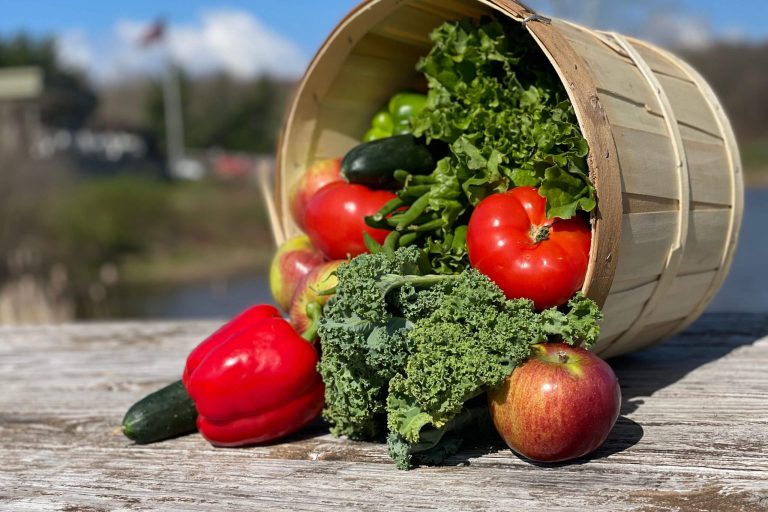So you're on a healthy eating kick! If stocking up on greens and berries from the produce section of your local grocery chain store is your MO, you may want to reconsider. Healthy eating doesn't get any easier during the local growing season when farm-fresh fruits and vegetables are practically in your own backyard. Joining a local CSA Farm Share is a simple solution with a bounty of benefits for your family, and for local farmers in the community. We've put together seven simple reasons why you should consider participating in a CSA Farm Share.
What is a CSA Farm Share?
If you've never heard of a CSA, it stands for Community Supported Agriculture. Community Supported Agriculture means both the member and the farmer share the risks and rewards of growing fresh produce. CSA members purchase a "crop share" in early spring, before the growing season begins. Then, throughout the season, farm share members pick up their share of just-harvested, farm-fresh vegetables and fruits on a pre-determined day, time and location. Each week's share follows the season since the produce is grown from seed, tended to, and then harvested at the peak of ripeness. It's like a weekly subscription for local fruits and vegetables!
What are the Benefits of Joining a CSA Farm Share?
- Farm-Fresh Produce -A key health benefit of farm-fresh fruits and vegetables is that they're fresher because they're picked at the peak of ripeness, when the nutrients are most dense (usually 24 hours or less before they're picked up)! In most cases, produce in the grocery store is harvested before it’s fully ripe, ensuring it can make the trip to store shelves without rotting. Additionally, in comparison to commercial farms, there is no artificial air, lights, temperature controls, or transport over long distances which cause food to lose nutritional value. For this reason, CSA produce stays fresher longer, so bon voyage to wilted greens and shriveled carrots!
- Locally Grown - CSA farm share produce is responsibly grown by local farmers. Eating local means there is more transparency about the people who grow your food. A CSA program typically lists local farm partners and information on their farming practices. Local farmers tend to focus on soil health and sustainable growing methods, resulting in better tasting, more nutritious fruits and vegetables.
- Economical - Buying local produce during the growing season is usually around the same price (or maybe even less expensive) as grocery store produce since you're not paying extra for transport or shipping. Canning or freezing fruits and vegetables can also help you save even more money during the off-season.
- Time Saver - Since top-quality produce is hand-selected just for you ahead of time, you save "shopping time"!
- Seasonal Eating - Eating with the seasons has a nutritional benefit. When produce is grown and eaten during the appropriate season, it is more nutritionally dense. For example, broccoli grown during the Fall, at its peak season, has a higher vitamin C content than broccoli grown during other seasons.
- Environment-Friendly - Buying local means buying foods that have undergone less travel, processing, and packaging. On average, fruits and vegetables travel 1,300–2,000 miles to get from farms to stores in your area. Local produce means less CO2 emissions from the energy required to transport and refrigerate produce.
- Variety - CSA Farm Shares are a great way to try new foods. Smaller, local farmers often grow heirloom produce, grown from seeds that haven’t been cross-pollinated with other plants, and other varieties not available at the grocery store. Eating a wider variety of vibrant fruits and vegetables provides a broad range of antioxidants and phytonutrients (plant substances that help fight disease). Some Farm Share programs, such as Lyman Orchards' CSA, may even provide you with new recipes.
There are plenty of reasons to join a local CSA Farm Share this year! Revolutionize your dinner table with farm-fresh, nutritional, and seasonal product. Click here for more information on Lyman Orchards CSA Farm Share.
